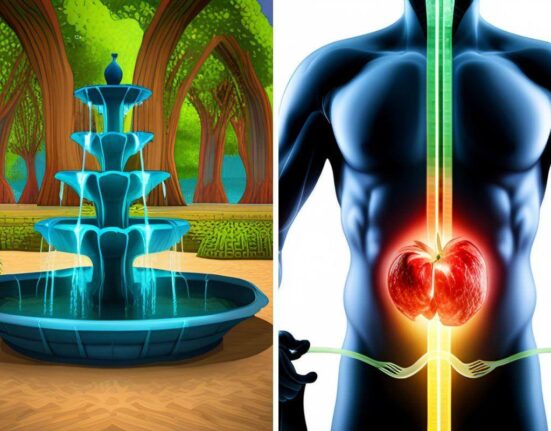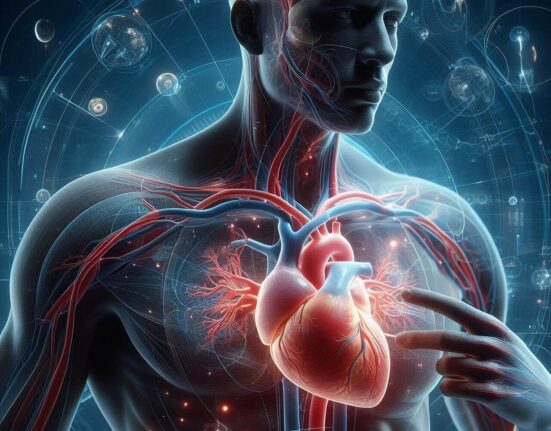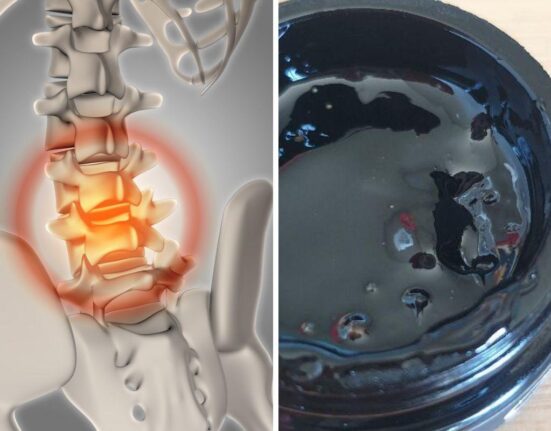Are you a coffee lover who just can’t resist the aroma and flavor of this magical brew? Do you also worry about the negative effects of caffeine on your health, such as jitters, anxiety, and disrupted sleep patterns?
Well, we have some good news for you! Recent studies suggest that by switching to decaf coffee, you can still enjoy the many health benefits of coffee without the drawbacks of excessive caffeine intake.
If individuals are dependent or addicted to a substance and experience negative consequences when attempting to quit, it is unlikely that the substance is as beneficial to their health as previously believed. To me, caffeine addiction doesn’t sound much different than a drug addiction.

Are people drinking more coffee than they originally wanted because they are saying “No” to the strong withdrawal symptoms?
From improved cognitive function to reduced risk of chronic diseases, the benefits of drinking decaf coffee are scientifically supported and definitely worth considering. So, grab a cup of decaf and let’s dive into the buzz-worthy world of coffee science!
What are the top 5 shared health benefits of drinking black decaf coffee?
The top 5 shared health benefits of drinking black coffee include:
1. Boosts brain function
Black decaf coffee contains antioxidants and caffeine which can help improve cognitive function, including memory, focus, and overall mental performance.

2. Black decaf coffee is rich in antioxidants and other beneficial compounds that have been linked to a lower risk of chronic diseases such as heart disease, diabetes, and some forms of cancer.

3. Increased metabolism and weight management
Because it has zero calories, black decaf coffee can be a great addition to any weight loss program. Research has also suggested that caffeine and other compounds in coffee can help boost metabolism and suppress appetite.

- Promotes heart health and improved physical performance
Regular consumption of decaf coffee has been linked to a reduced risk of stroke and cardiovascular disease. It may also help lower blood pressure and improve blood vessel function, leading to better heart health over time.

- Lower risk of liver disease
Drinking black decaf coffee has been associated with a reduced risk of liver diseases such as cirrhosis and liver cancer, due to its ability to increase antioxidant levels and reduce inflammation in the liver.
- Lowers risk of type 2 diabetes
Studies have found that regular consumption of decaf coffee can help lower the risk of developing type 2 diabetes by improving insulin sensitivity and reducing inflammation.


Caffeine does not take credit for the health benefits in black coffee.
The idea that caffeine improves cognitive function is a common belief, and many people turn to coffee or other sources of caffeine as a way to boost their mental performance.
However, recent research suggests that the perceived effects of caffeine on cognitive function may not be entirely accurate.

One theory is that the brain’s response to caffeine is actually a stress response, triggering the release of adrenaline and other stress hormones that can increase heart rate, blood pressure, and energy levels.
This can create a feeling of increased alertness or focus, but it’s not necessarily a true enhancement of cognitive function.

In fact, some studies suggest that caffeine may actually impair cognitive function in certain situations, such as when working on complex tasks or trying to multitask. This is because caffeine can interfere with the brain’s ability to regulate attention and stay focused on one task at a time.

Overall, while the perceived effects of caffeine on cognitive function may feel real, they are likely the result of the brain’s stress response rather than a true improvement in cognition.
None of these benefits are from the caffeine alone, they are from the compounds in the coffee beans. Removing the caffeine does not remove the health benefits.

Excessive consumption of caffeine can lead to negative side effects such as jitters, anxiety, and disrupted sleep patterns.
As always, it’s important to consult with a healthcare provider before making any significant changes to your diet or lifestyle, especially if you need guidance on how to start reducing and/or removing caffeine from your diet.
My unintentional road to quitting caffeine
I never set out with the intention to quit coffee when I was trying to detox, it wasn’t even a goal. For years, it was my faithful companion every morning, helping me power through work and school. But then I started to feel like my body needed a break.
Too many toxins in my food, air, and water were taking a toll on me, and my liver in particular. So I decided to go on a detox, cutting out anything that wasn’t natural or homemade. I was drinking a lot of fresh celery juice and all other fresh juices to help cleanse my liver.
At first, I didn’t even think about my coffee habit. I prepared my usual cup each morning along with my celery or pineapple juice, drinking the coffee black and without much thought. I was feeling so good I also kept up my juice intake on vacation, opting for fresh pineapple coconut juices often while we were in Mexico.

But as the days went on, I noticed something strange happening. I was drinking less and less coffee each day, sometimes not even finishing my cup. I didn’t know why at first, but I just didn’t crave it like I used to.
After two weeks of this detox, I realized that I had lost my taste for coffee completely. I couldn’t stomach more than two sips of it, and I found myself dumping most of it down the drain. It was like my body had decided that coffee was no longer necessary or desirable.

It was a strange feeling, letting go of something that had been such a constant in my life for so long. But I didn’t miss it as much as I thought I would. Instead, I found myself reaching for herbal teas without caffeine, enjoying the warmth and comfort they provided without the jolt of caffeine. And some days, I didn’t even need a warm beverage at all.
Looking back, I’m surprised at how easy it was to quit coffee. I never intended to stop drinking it, but my body seemed to know what was best for it. And now, I feel lighter and more energized than ever before.
Better Ideas explains how to quit caffeine, and why you might want to!
Explanation of the phenomena of diminished desire for food and drinks that are not healthy
When your start to eat natural, whole foods, you may find that your taste for processed junk food diminishes. This is because the food you eat can influence your brain’s reward system, which is responsible for regulating feelings of pleasure and satisfaction.
Dopamine triggers are reset in the brain upon consistent healthy eating
Processed junk food is often high in sugar, salt, and unhealthy fats, which can cause a surge of dopamine, a neurotransmitter associated with pleasure and reward, when consumed.

This dopamine release can create a powerful association between the taste of processed foods and positive feelings, leading to cravings and overconsumption.
In contrast, whole foods such as fruits, vegetables, whole grains, and lean proteins are typically lower in these addictive components but higher in fiber, vitamins, minerals, and other beneficial nutrients.
Consuming these nutrient-dense foods can help to nourish your body and support healthy brain function, including the regulation of the reward system.

Over time, as you continue to consume whole foods and reduce your intake of processed junk food, your brain’s reward system can adapt to prefer healthier options.
As you become accustomed to the flavors and textures of whole foods, you may find that processed junk food tastes overly salty, sugary, or greasy, and lacks the depth of flavor and nutrition that whole foods provide.
Additionally, eating a diet rich in whole foods can improve your overall health and well-being, which may further reduce cravings for unhealthy options. By supporting your body with the nutrients it needs, you can feel more satisfied and energized, without relying on processed foods for a quick fix.
Baby steps, it doesn’t happen overnight
It’s important to note that everyone’s taste preferences are different, and some people may still enjoy the taste of processed foods even after switching to a whole foods diet.
Additionally, the process of changing your eating habits can take time and may not happen overnight. However, by focusing on nourishing your body each day with whole, natural foods, you can support your health and potentially reduce cravings for unhealthy options.
Caffeine’s not so positive impact on the body
Caffeine has long been known to impact the body’s systems in numerous ways, including affecting the cardiovascular, nervous, and digestive systems.
While moderate caffeine consumption is generally considered safe for most people, it can cause negative side effects such as anxiety, restlessness, and insomnia in some individuals.
Furthermore, when it comes to enjoying the health benefits of green tea, caffeine may interfere with the absorption of the polyphenols responsible for these benefits, namely the catechins.
Saying “No thanks” to the negative side effects
In addition to improving catechin availability, drinking decaf green tea can also reduce the risk of negative side effects associated with caffeine consumption.
While decaf green tea does still contain a small amount of caffeine, this amount is far lower than what is found in regular green tea. For those who still desire a caffeine boost, decaf green tea can still provide a modest amount for a gentle pick-me-up.
10 reasons to strive to avoid caffeine
- Caffeine can cause anxiety
Research has shown that high doses of caffeine can cause an increase in anxiety symptoms, including restlessness, irritability, and nervousness.

- Caffeine can impact sleep quality
Consuming caffeine, especially late in the evening, can interfere with your ability to fall asleep, and disrupt the quality of your sleep.

- Caffeine can cause jitters
In high doses, caffeine can cause physical symptoms such as shaky hands, rapid heartbeat, and even muscle tremors.
- Caffeine can cause dehydration
Caffeine is a diuretic, meaning it can increase urine output and lead to dehydration if not consumed alongside enough water or fluids.

- Caffeine can exacerbate heart conditions
People with pre-existing heart conditions or high blood pressure may experience worsening of symptoms after consuming caffeine.

- Caffeine can cause headaches
While caffeine may help relieve mild headaches, excessive caffeine intake can actually trigger headaches and migraines.

- Caffeine can impact digestion
Some studies have linked caffeine consumption with digestive issues like acid reflux, stomach ulcers, and diarrhea.

- Caffeine can impact calcium absorption
High caffeine intake can impair calcium absorption and contribute to lower bone density over time.

- Caffeine can impact fertility
Studies have suggested that high caffeine intake may negatively affect fertility in both men and women.

- Caffeine can cause dependence
Because caffeine is a stimulant, regular consumption can lead to dependence and withdrawal symptoms such as headaches, fatigue, and irritability when discontinued.

Concluding thoughts on cutting or eliminating caffeine from coffee consumption
It is important to be aware of the potential negative impacts of caffeine, because there is too much information out there not addressing the real health detriments of consuming so much caffeine as a society.
From exacerbating heart conditions and impacting digestion to reducing calcium absorption and fertility, excessive caffeine consumption can have real and serious consequences for our health.
For those considering cutting back on or eliminating caffeine from their coffee consumption, it’s important to do so gradually and be prepared for possible withdrawal symptoms. Have an accountability buddy to help you through it, whatever it takes, a non-dependent body is worth the struggle!
Sources and further reading
In Jason Cristoff’s article 14 Little Known Facts About Coffee, he explains why there seems to be a coffee shop at every corner.
14 Little Known Facts About Coffee goes deeper into interesting facts about caffeine and why most of humanity seems to be drinking it.
- “10 Reasons to Quit Caffeine (Plus Healthy Alternatives)” by Healthline https://www.healthline.com/nutrition/10-reasons-to-quit-caffeine
- “Caffeine and Sleep” by the National Sleep Foundation https://www.sleepfoundation.org/articles/caffeine-and-sleep
- “Caffeine and Anxiety: Understand the Connection” by Mayo Clinic https://www.mayoclinic.org/diseases-conditions/anxiety/expert-answers/caffeine-and-anxiety/faq-20058459
- “Caffeine and Its Effects on the Body” by Harvard Health Publishing https://www.health.harvard.edu/staying-healthy/caffeine-and-its-effects-on-the-body
- “The Effect of Caffeine on Mood, Cognitive Function, Performance, and Hydration: A Review of Benefits and Risks” by Frontiers in Psychiatry https://www.ncbi.nlm.nih.gov/pmc/articles/PMC3777290/
These resources provide detailed information on the potential benefits of reducing or eliminating caffeine from your diet, including its effects on sleep, anxiety, hydration, and overall health. Always consult with a healthcare provider before making any significant changes to your diet or lifestyle, as individual needs and circumstances may vary.
The links used on thewellthieone.com are affiliate links, which may provide a small commission. This does not increase the price of the goods for the consumer whatsoever. What it does is ensure that useful content like this can continue to be produced. Thank-you for enjoying our content and allowing us to continue to provide more.







